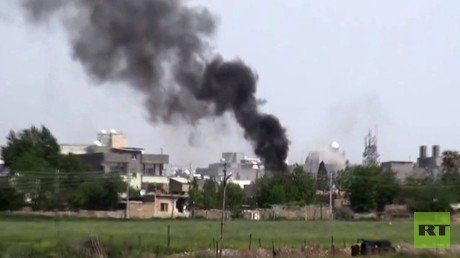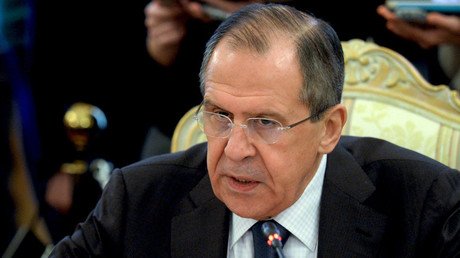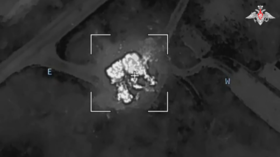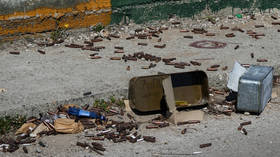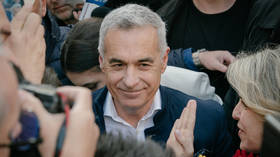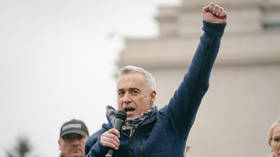Children, women killed by Turkish border guards while fleeing Syria – report
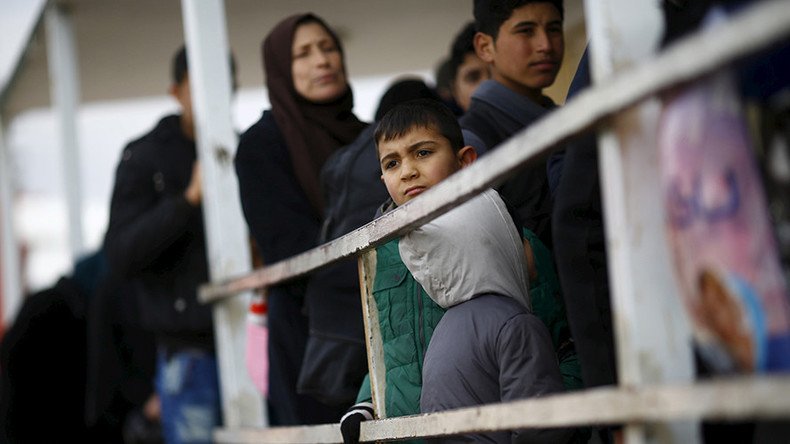
Eight Syrians were killed by Turkish border guards while fleeing violence in their war-torn country, according to footage obtained by The Times. Most of the victims were women and children.
The group was trying to cross into Turkey through a mountain smuggling route at the western end of the border on Sunday night, but were forced back by government forces firing live rounds.
Video footage recorded on a mobile phone reportedly shows a man carrying his young son after the boy was shot in both legs. The father is seen turning back down the mountain path in search of medical help.
Another man, who was shot in the upper arm, allegedly says in the video that he is fleeing Islamic State (IS, formerly ISIS/ISIL) and the Syrian regime.
Abdmunem Kashkash, a lawyer who was with the group and managed to cross into Turkey unharmed, said the Turks are "killing unarmed people" at the border, as cited by the paper.
“There was one little girl who was shot and we could not do more for her for four hours, until nightfall. An old man and woman are missing — they have probably been killed too," the lawyer added.
Kashkash said that he and the rest of the group had been waiting near the Turkey-Syria border for days while trying to cross, and had come under fire from Turkish forces every day.
Those injured by the Turkish guards were taken to a hospital in Azaz, Syria, a rebel-held town next to the border which is sheltering 100,000 displaced Syrians. That border crossing has been closed for most of the year, despite ISIS closing in on the town from the east. The Turkish government has declined to respond to calls from aid agencies to open the border gate.
Despite the Sunday night killings, the Turkish government says its open-door policy at the border remains unchanged, and is open to all Syrians whose lives are in imminent danger.
"Certain restrictions may apply due to special circumstances, but the policy hasn't changed," a senior Turkish official told The Times.
The official added that it is "difficult to enforce a land border and the Turkish border guard is acting with extreme care because smugglers and militants have fired on them in the past. But we categorically deny claims that Turkish border guards are firing on refugees.”
Meanwhile, human rights organizations disagree with the Turkish government’s claim that its forces aren't shooting and killing refugees.
Earlier this month, Human Rights Watch (HRW) called on Turkey to stop firing on Syrian civilians and to allow them to cross the border.
“As civilians flee ISIS fighters, Turkey is responding with live ammunition instead of compassion,” Gerry Simpson, senior refugee researcher at HRW, said in a statement. “The whole world is talking about fighting ISIS, and yet those most at risk of becoming victims of its horrific abuses are trapped on the wrong side of a concrete wall."
Andrew Gardner, a researcher at Amnesty International, told RT in March that Turkish guards routinely shoot Syrian refugees stranded at the border.
“There have been many reports of incidents on the border. We collected information on this as early as 2014, when we received many reports of people being shot when they were trying to cross the border irregularly,” Gardner said.
He added that the current situation in Syria has led to a spike in the number of migrants being assaulted by Turkish border guards.
The path that the group was trying to take on Sunday, between the Syrian village of Khirbet al-Joz and the Turkish village of Guvecci, was one of the first routes used by refugees to flee the country in 2011, when the country's civil war began.
Turkey has since designated the border area as a military zone, building a concrete wall along key stretches of the 822-kilometer (511-mile) frontier.
Even those who make it through the border aren't necessarily safe once they land on Turkish soil.
According to Amnesty, Turkey has forcibly returned thousands of Syrian refugees to their homeland since mid-January. The organization also alleged that Turkish authorities have scaled back the registration of Syrian refugees in the southern provinces, making it impossible for them to access basic services.
Syrians have been fleeing their country since 2011, when the country's civil war began. The ongoing violence has led to the deaths of 250,000 people and the displacement of 12 million, according to UN figures.
